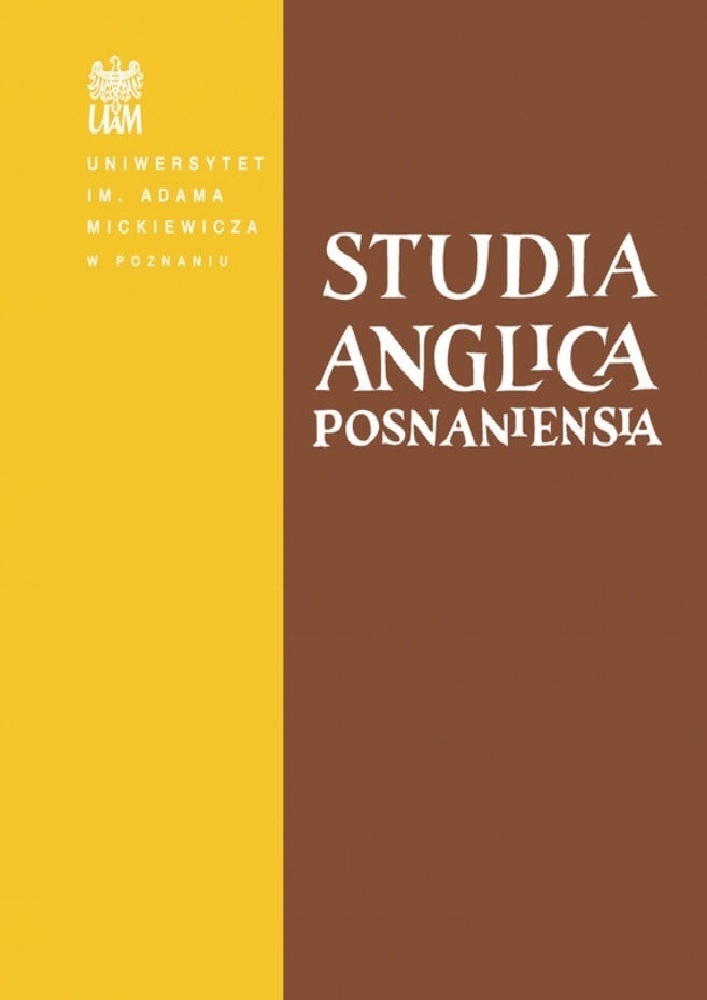Abstract
This article attempts to re-signify the already extensively discussed conception of the absurd attributed to the aesthetic phenomenon presented by the so-called theatre of the absurd by critically reconsidering its paradigmatic work Waiting for Godot in relation to philosophical hermeneutics (Heidegger, Gadamer, Ricoeur). The fact that Beckett’s artistic method invalidates the transparency of the mirror-like relation between reality and art is known, and yet the potential theoretical consequences of such a literary revolution do not seem to have been exhausted - particularly in respect to the category of the absurd. Hence, the presented inquiry aims to view the phenomenon quite against its common conceptualizations derived from existentialist philosophy in order to indicate a possible route of exploring it from a hermeneutic perspective and thereby challenging, to some extent, Simon Critchley’s (2004: 165) famous assertion that Beckett’s oeuvre seems “uniquely resistant to philosophical interpretation”.
References
Beckett Samuel. 1984. Three conversations with Georges Duthuit. In Ruby Cohn (ed.), Disjecta: Miscellaneous writings and a dramatic fragment, 138-146. New York: Grove Press.
Beckett, Samuel. 2006. Waiting for Godot. London: Faber and Faber.
Beckett, Samuel. 2009. Three novels: Molloy, Malone dies, The Unnamable. New York: Grove/Atlantic.
Gadamer, Hans-Georg. 1977. “Man and language” and “Aesthetics and hermeneutics”. In Philosophical hermeneutics, Trans. David E. Linge, 59-69, 95-104. California: University of California Press.
Gadamer, Hans-Georg. 1994. What is truth? In Brice R. Wachterhauser (ed.), Hermeneutics and truth, Trans. Brice R. Wachterhauser, 33-46. Evanston, IL: Northwestern University Press.
Heidegger, Martin. 2008. On the essence of truth. In José Medina & David Wood (eds.), Truth: Engagements across philosophical traditions, 243-257. Oxford: Blackwell Publishing.
Ricoeur, Paul. 1976. Interpretation theory: Discourse and the surplus of meaning. Fort Worth: Texas Christian University Press.
Ricoeur, Paul. 1991. From text to action. Essays in hermeneutics II. Trans. Kathleen Blamey & John B. Thompson. Evanston, IL: Northwestern University Press.
Adorno, Theodor. 1992. Understanding Endgame. In Rolf Tiedemann (ed.), Notes to literature. Volume 1, Trans. Shierry Weber Nicholsen, 216-241. New York: Columbia University Press.
Adorno, Theodor. 2002. Aesthetic theory, Trans. Robert Hullot-Kentor. New York: Continuum.
Bennett, Michael Y. 2011. Reassessing the theatre of the absurd: Camus, Beckett, Ionesco, Genet, and Pinter. New York: Palgrave Macmillan.
Butler, Lance St. John. 1984. Samuel Beckett and the meaning of Being: A study in ontological parable. Basingstoke: Palgrave Macmillan.
Casanova, Pascale. 2006. Samuel Beckett: Anatomy of literary revolution. London: Verso.
Cohn, Ruby. 1980. Just play: Beckett’s theater. Princeton: Princeton University Press.
Connor, Steven. 1988. Samuel Beckett: Repetition, theory and text. Oxford: Basil Blackwell.
Critchley, Simon. 2004. Very little… Almost nothing: Death, philosophy, literature. London & New York: Routledge.
Dearlove, J.E. 1982. Accommodating the chaos: Samuel Beckett nonrelational art. Durham: Duke University Press.
Esslin, Martin. 1974. Theatre of the absurd. London: Methuen.
Federman, Raymond & Lawrence Graver. 2013. Samuel Beckett. London: Routledge.
Gavins, Joanna. 2012. The literary absurd. In Joe Bray, Alison Gibbons & Brian McHale (eds.), The Routledge companion to experimental literature, 62-74. London: Routledge.
Gavins, Joanna. 2013. Reading the absurd. Edinburgh: Edinburgh University Press.
Graver, Lawrence & Raymond Federman (eds.). 1979. Samuel Beckett. The critical heritage. London: Routledge & Kegan Paul.
Hayman, Ronald. 1979. Theatre and anti-theatre: New movements since Beckett. London: Secker & Warburg.
Hunt, Hugh. 1962. The live theatre: An introduction to the history and practice of the stage. London: Oxford University Press.
Ihde, Don. 1971. Hermeneutic phenomenology: The philosopher of Paul Ricoeur. Evanston: Northwestern University Press.
Levy, Shimon. 1990. Samuel Beckett. Self-referential drama: The three I’s. London: Macmillan.
Locatelli, Carla. 1990. Unwording the world: Samuel Beckett’s prose works after the Nobel Prize. Philadelphia: University of Pennsylvania Press.
Murphy, P.J. 1994. Beckett and the philosophers. In John Philling (ed.), The Cambridge companion to Beckett, 222-240. Cambridge: Cambridge University Press.
Olney, James. 1998. Memory and narrative: The weave of life-writing. Chicago: University of Chicago Press.
Oppo, Andrea. 2008. Philosophical aesthetics and Samuel Beckett. Bern: Peter Lang.
Philips, James. 2009. Beckett’s boredom. In Barbara Dalle Pezze & Carlo Salzani (eds.), Essays on boredom and modernity. (Critical Studies Series.) Amsterdam & New York: Rodopi.
Wolosky, Shira. 1995. Language mysticism: The negative way of language in Eliot, Beckett, and Celan. California: Stanford University Press.
